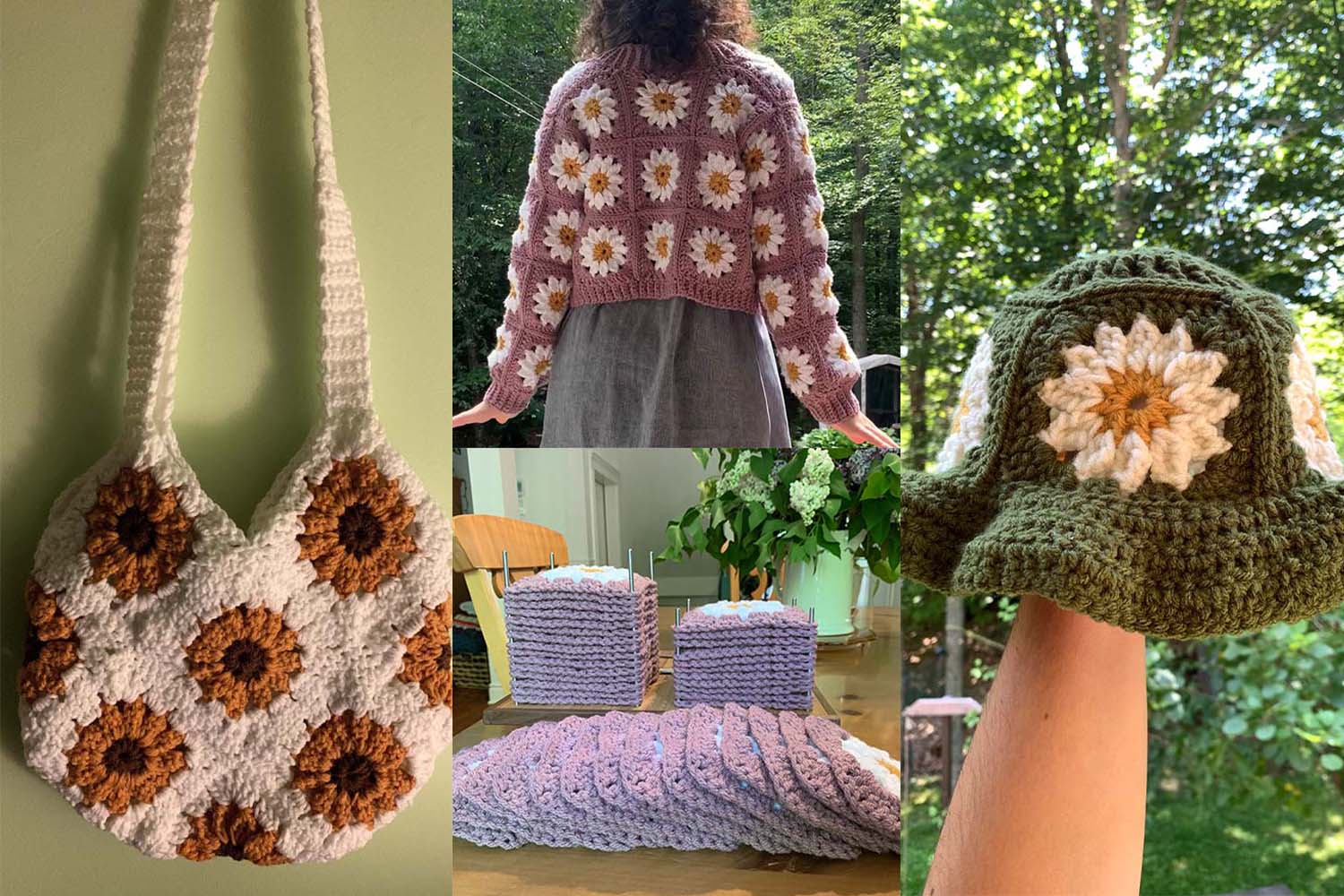Integrating a hobby into your everyday life is essential for your well being.
During lockdown in 2021, I came across a YouTube video on how to make a doll. I was mind-blown after seeing how a few pieces of felt, cotton and thread came together into a beautiful creation. I went on Amazon and purchased all the supplies needed—it took me three days to make my first doll and the process felt relaxing. All of a sudden, I went from feeling bored to being busy sketching and sewing more dolls. My time in lockdown was no longer depressing, but rather fulfilling.
Memories of knitting when I was in high school all came back to me. I started knitting again, and realized that in the same way doll-making was getting me through the pandemic, knitting helped me cope with anxiety and depression.
Creating something is so calming; seeing something forming before your eyes is such a rewarding experience. More importantly, it helped me discover new things about myself. I learned that I am a creative person. My passion and curiosity for crafting grew, and I started crocheting.
The time I had alone, putting thousands of stitches together, allowed me to self-reflect. It was a way to calm my mind and take a step back from everything to process what I was going through. Crafting feels like you’re making magic, which made me feel joyful. I never imagined that something as simple as yarn could have this power. I had consistently underestimated the power of having a hobby.
We all need a little fresh air in our chaotic schedule. We experience so many feelings and situations throughout the day, and we must discover ways to release those negative emotions. Some people do that through writing, others paint or go for a run. Regardless of our chosen hobby, the outcome is guaranteed to be positive.
Studies have shown that a hobby improves mental health; it reduces stress and creates a sense of escapism. People experience fulfillment and a boost in their self-confidence. Having a hobby will also enhance your social life, which helps reduce feelings of loneliness. From my experience, crochet helped me make new friends as I joined crochet workshops.
Interestingly, hobbies can actually enhance productivity. A study led by Kevin Eschleman, an assistant psychology professor at San Francisco State University, showed that people with creative hobbies had 15 to 30 percent higher performance rankings. When we unwind, our mind becomes more focused, which improves performance.
Overall, having a hobby contributes to our personal growth. We learn new things about ourselves, discover unexpected passions, and make ourselves more curious. My hobbies transformed my mind and made me feel better about myself. Incorporating hobbies into your daily life is as simple as reading before bed, redirecting screen time toward something more creative, or crocheting on the bus. Check out Concordia’s Student Life to discover available workshops and activities on campus.
